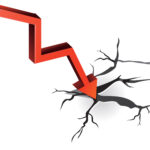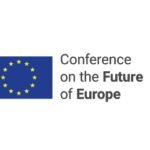It surely is a religion: the worship of the planet earth. No doubt about that. At the same time it is risible: a peninsula attached to a huge Asiatic continent wishes to make the global climate better and – as if the movement of waters and winds could be stopped at state borders – to make its own climate better. How? By banning the fossil fuels (which means: by banning the combustion engine), relying on renewable sources of energy and developing the CO2 market (you know, the market where you buy and sell CO2 quotas). You see, in the Middle Ages people would trade in relics: in the 21st century people trade in CO2! Isn’t that one thing alone a grand exploit that the European Union has pulled off?
No combustion-engine cars to be manufactured after 2030 plus net CO2 emissions by 2050! Why? For what purpose? Well, to save the planet, stupid! We all know that Mother Earth is suffocating and getting overheated (or overcooled, depending on the currently valid scientific version concerning the global climate); we all know that it is man-made. If you are not convinced, then look at the children: they know it! They know it for certain! That’s why they are protesting and begging you (if that is not enough: demanding of you) that you reconsider your life choices.
You know, it is not only the climate. We are all running out of water and food. What do you think will happen once water and food are in short supply? Famine? Y-e-e-e-s. Try hard to follow the thought where it leads. Imagine a global famine and water shortages. What do you think it will lead humanity to? Yes, bingo! To war! So, to prevent war over food and war over water from breaking out, the men and women (or the representatives of the other sixty or so recognized genders) who happen to be at the helm of the European Union do their best to spare us the bleak future. Yes, we will all pay for it: prices will shoot up, but then health, life and peace are invaluable. We will all willingly sacrifice our comfort and resign from the luxuries and pleasures of the flesh to… save the flesh.
Ursula von der Leyen (President of the European Commission or in plain English: the EU’s prime minister) and Frans Timmermans (Executive Vice-President of the European Commission or again in plain English: the EU’s deputy prime minister) along with all the Directorates-General (in plain English: ministries) indefatigably keep foisting upon us the magic phrases of European green deal, climate neutral Europe, reduction in emissions, clean transport, electric vehicles, sustainable (their beloved word!) houses, clean energy, renewable energy, protecting nature, a healthier future, support for vulnerable citizens (always the same!), and they assure us that all this is doable. Ursula von der Leyen says that she wants Europe to become the first climate-neutral continent in the world by 2050. She says verbatim: “I want Europe to become…”. You see? Occasionally, they let a word out here and there for all to hear: they want to enforce those changes, Ursula von der Leyen, Frans Timmermans, and company. Whenever they are on their guard, they say that it is the Europeans who want it, but when they are off their guard, they say as it is. Continue reading























